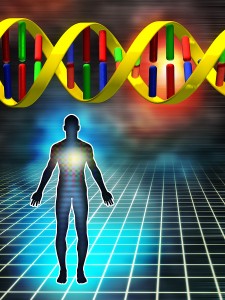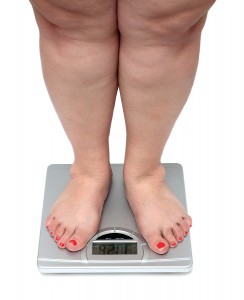 Emotional eating is the way we cope with negative feelings we don’t want to feel. By eating, even when we aren’t hungry, we get distracted from the feelings we don’t want to feel and experience a pleasurable feeling instead.
Emotional eating is the way we cope with negative feelings we don’t want to feel. By eating, even when we aren’t hungry, we get distracted from the feelings we don’t want to feel and experience a pleasurable feeling instead.
These negative feelings ultimately become conditioned and act as “triggers” that result in automatic, compulsive overeating.
 When you use the Lefkoe De-conditioning Process to de-condition your many triggers, you realize that earlier in life you had (unconsciously) chosen eating as the best way to pleasurably distract yourself from your negative feelings (such as anxiety, feeling unlovable, depression, and boredom). It wasn’t that eating was necessarily the best way to cope with the negative feelings, it was just that you ate three times a day and noticed that, whenever you ate, you focused on the pleasure of eating instead of the negative feelings. That’s how eating got conditioned as an automatic response to the negative feelings.
When you use the Lefkoe De-conditioning Process to de-condition your many triggers, you realize that earlier in life you had (unconsciously) chosen eating as the best way to pleasurably distract yourself from your negative feelings (such as anxiety, feeling unlovable, depression, and boredom). It wasn’t that eating was necessarily the best way to cope with the negative feelings, it was just that you ate three times a day and noticed that, whenever you ate, you focused on the pleasure of eating instead of the negative feelings. That’s how eating got conditioned as an automatic response to the negative feelings.
You also realize that, in fact, there are many other things that might have worked to distract yourself from the negative feelings; you just hadn’t thought of them earlier in your life. Some activities that might have worked as a coping mechanism include a hot bath, exercise, a walk, talking to a friend, reading a book, or listening to music.
But using eating or any of these other activities to distract ourselves from our negative feelings implies that we are unable to cope with our negative feelings and that we need something to keep ourselves from facing them. In fact, although negative feelings can feel overwhelming, distracting ourselves with eating doesn’t really work. Not only doesn’t the distraction last for long, we end up feeling worse (guilty and bloated) after we stuff ourselves when we aren’t hungry. The negative consequences of other distracting activities aren’t quite as bad, but they still are only a temporary respite and the negative feelings are still there when we finish eating (or any other activity).
It actually is possible to just allow ourselves to experience our negative feelings and to realize that while we “have” these feelings, they are not who we are. We don’t have to use eating or any other distraction to deal with our negative feelings; we can just feel them and know they will pass.
If you really want to “handle” your negative feelings, the best way is not to pretend they don’t exist for a few minutes (which is the only respite eating gives you), but, instead, to eliminate the beliefs and conditionings that cause them. Every negative feeling you have is either the result of beliefs and conditionings, or the meaning you are giving current events. Events, as such, cannot make you feel anything.
Eating to feel good
If you eat to make yourself feel good, as opposed to eating to cover up negative feelings, there is a much better solution than eating, which only gives you a “high” for the few minutes you are eating.
Use the Who Am I Really? (WAIR?) Process, which enables you to experience yourself as the creator of your life, with anything possible and nothing missing. People who have used that Process report a feeling of bliss and unlimited possibilities that can easily be a substitute for eating. You can download an MP3 of that Process at http://recreateyourlife.com/free/who-am-i-really-mp3.php.
The only precondition for using the WAIR? Process is eliminating at least one belief using the Lefkoe Belief Process. You can do that free of charge at http://recreateyourlife.com.
For more details, please see my eBook, The Secret to Ending Overeating For Good, at http://emotionaleatingreport.com. You also can get answers to specific questions at my office, 415-884-0552.
Copyright © 2011 Morty Lefkoe





